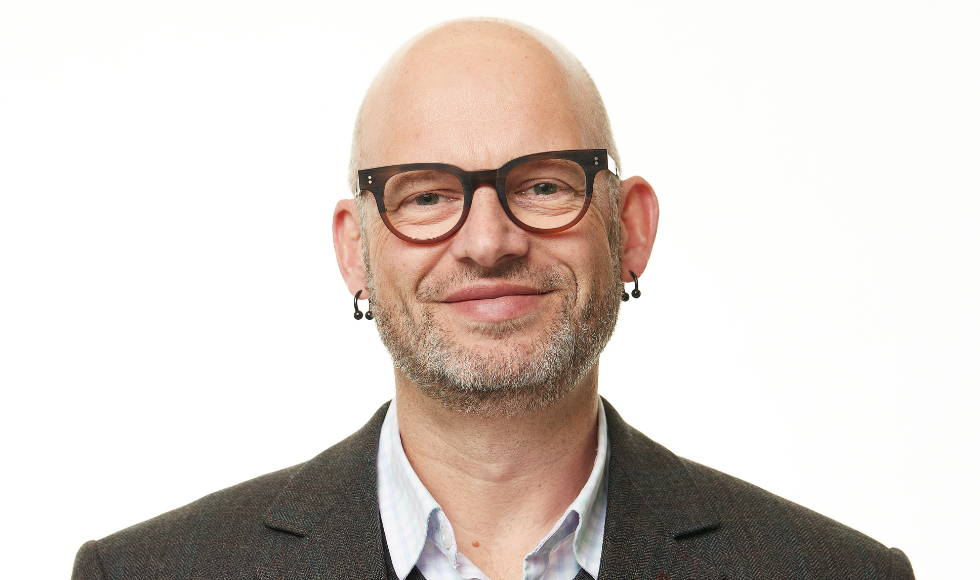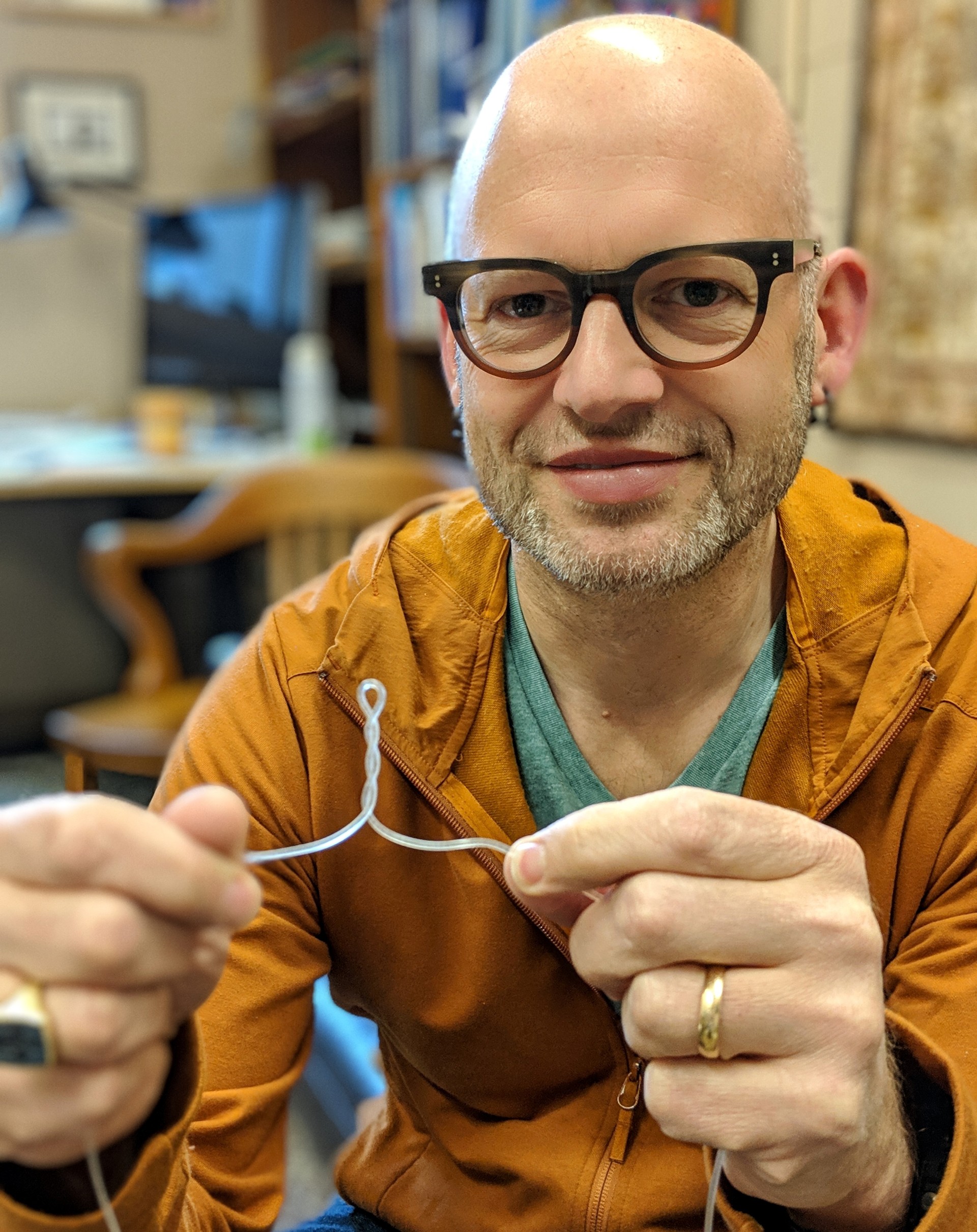How a McMaster physics professor pivoted from a startup mistake to a game changing innovation

Kari Dalnoki-Veress doesn’t shy away from talking about mistakes.
The McMaster physics professor talks about them constantly during meetings with his research group. He even created an award for members who fess up when they mess up — Dalnoki-Veress routinely bestowed the honour on himself.
And so Dalnoki-Veress is quick to share the entrepreneurial mistake he made — one that almost proved fatal to his startup.
In 2017, Dalnoki-Veress co-founded MesoMat with standout former student Paul Fowler after their lab unexpectedly discovered a way to create what he describes as “wearable yarn” — a stretchable, conductive plastic-based wire that’s thin as hair, using micro-sized inductive coils.
Though Dalnoki-Veress never initially planned to start a business, he saw the commercial potential in their invention.
Their product was superior to the copper wire being woven into clothing, so MesoMat initially focused on wearable tech.
This was, however, a misstep, Dalnoki-Veress admits. The wearable tech market was already saturated.
Dalnoki-Veress points to the smart watch on his wrist and the smartphone in his pocket. “People already have all the wearables they want.”
While he’s loathe to offer advice to faculty and students with entrepreneurial aspirations — “I’m just a sample size of one” — he does offer one insight: Understand the market, figure out where your product fits into that market and then deliver your product to market as fast as possible.
It’s advice that lots of entrepreneurs ignore. According to CBInsights, an AI super analyst for market intelligence, misreading market demand is the number one reason why startups fail.
Wearable tech is out: Tire tech is in
Dalnoki-Veress and Fowler wasted no time in fixing their mistake, pivoting MesoMat to a new market where there’s a perfect fit with the company’s product: Tires. Specifically, the tires on transport trucks that deliver the world to our doors.
It’s a massive market, with an estimated 13.5 million trucks on the road in the United States and another 700,000 in Canada.
It’s also a market still in need of solutions. Competition is intense and profit margins are razor thin. Everything from safety, on-time delivery, fuel consumption, vehicle performance and operating costs rests on a transport trailer’s 18 tires.
MesoMat’s tire-mounted sensors continuously collect and send real-time data to cloud dashboards for increased efficiencies. With so many trucks on the road, small gains — like avoiding a blown tire, extending the life of a tire by weeks or getting a few extra kilometres out of a litre of gas — quickly add up to major savings, along with improved health and safety and less environmental impacts.
The best of both worlds
Running a growing company while leading a research group and teaching a full course load is as exhausting as it sounds. So why does he do it?
It’s invigorating, exciting and ridiculously fun, says Dalnoki-Veress. He’s getting the best of two worlds — his research group’s focused on fundamental physics while it’s all applied physics over at MesoMat, which is located at the McMaster Innovation Park.

Maintaining a clear divide between his lab and company was a deliberate decision he made right from the start. Having a high-performing and self-directed team of incredibly talented students in his lab makes it all possible.
There’s one final motivator for logging the long days, nights and weekends — Dalnoki-Veress is proud to call Hamilton home. He says Hamilton has a lot going for it — a world-class research university, nature all around and proximity to an international airport.
And he wants his adopted city to be home for more McMaster graduates.
“The talent pipeline flowing into Mac is magnificent,” he says.
Dalnoki-Veress knows this firsthand from working alongside outstanding students in his lab and teaching them in his courses.
What Hamilton needs are more MesoMats — cutting-edge startups and fast-growing companies on a mission to change the world. Without them, the talent flowing into McMaster will keep flowing out to cities like Toronto and Waterloo, Palo Alto and Cambridge, Massachusetts.
Every MesoMat employee is a McMaster graduate and every co-op student is a McMaster student. As the company grows, so will jobs and co-op opportunities for students and alumni.
So what’s one thing McMaster could do to support faculty looking to launch made-in-Hamilton companies that put students and alumni to work?
“Give us more time,” says Dalnoki-Veress. Having one fewer course to teach — along with an open and transparent process for making and approving that request — would be a gamechanger.
For now, Dalnoki-Veress is finding a way to make it all work. “I love my job – I can’t imagine a world where I’m not doing research, teaching, supervising students and helping to run a company.”

